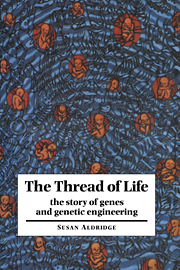10 - Plant power
from PART III - Biotechnology
Published online by Cambridge University Press: 16 March 2010
Summary
Plants support life on earth, primarily by transforming the energy of the Sun into the chemical energy of food during photosynthesis. They are also the raw materials for medicine and natural textiles.
For the last several thousand years, we have done our best to mould plants to our needs with agriculture. Traditional breeding methods have tried to exploit the best of what the plant world has to offer. Now biotechnology and genetic engineering are opening up major new possibilities, not only of breeding plants with desirable characteristics but also of creating entirely new plant species. To date, the commercial success of plant biotechnology has been limited. However, its scope is potentially very broad – from providing food for a growing world population to introducing novel flowers such as blue roses and brick-red petunias.
One cell, one plant
Biotechnology applied to plants takes advantage of the fact that – unlike animal cells – plant cells are totipotent. This means that the pattern of gene expression in a plant cell gives it the potential of becoming any kind of cell in the mature plant. So a plant cell could end up in the stem, leaf, flower or root. Animal cells, however, are pluripotent. They can only become one of a limited group of cell types. Stem cells, for example, which are produced by the bone marrow of humans and other vertebrates, could become any one of a number of white blood cells used by the body to fight infection. But they could never become nerve cells, or muscle cells.
- Type
- Chapter
- Information
- The Thread of LifeThe Story of Genes and Genetic Engineering, pp. 197 - 222Publisher: Cambridge University PressPrint publication year: 1996



